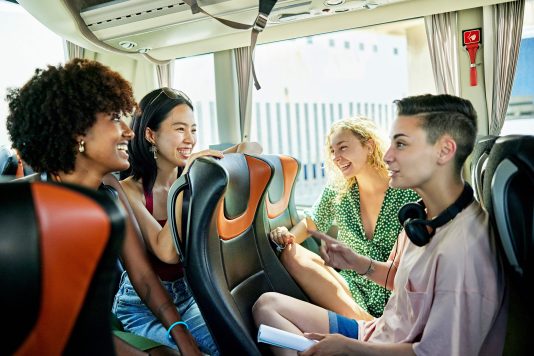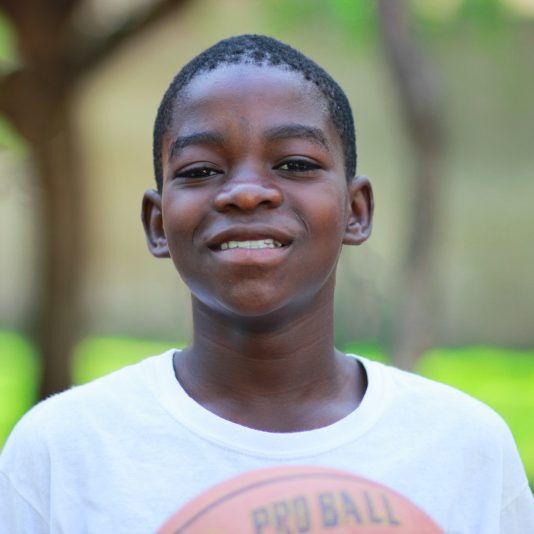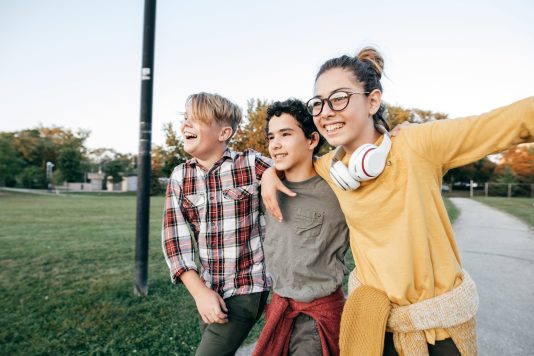


“Trust requires us to surrender and give up our own beliefs. In other words, to help teens grow and achieve their goals, we need to believe in them, which means loving them a lot.”
– Michel Fize, Antimanuel de l’adolescence
Traditional cultures may sometimes have rigid educational practices that value submitting to authority rather than communication and well-being. According to psychoeducator Stéphanie Deslauriers, young people who are often ignored and unvalued may develop feelings of inferiority and self-doubt. But this can also lead to family conflicts and undermine young people’s trust in their parents, especially when there is a significant cultural gap.
Living in a disadvantaged area may exacerbate these problems. Lack of access to financial and cultural resources and social stigmatization feeds young people’s feelings of being “less” than others. This phenomenon is particularly pronounced in school, where parents sometimes refuse to get involved due to language barriers, according to Stéphanie Deslauriers.
Yet young people in precarious environments also experience trust issues with the other adults around them. Teens from disadvantaged backgrounds are more prone to behavioural problems, have more difficulty in school or are more likely to fall into delinquency and often have strained relationships with their teachers.
Thus, nurturing their self-esteem while helping them develop trusting relationships with the adults around them is fundamental to ensuring their healthy development.
Trust: an essential identity-building factor for teens from disadvantaged backgrounds
One of the most important challenges for teens is their quest for self. Who am I? What are my values? What does my future have in store? Teens need to learn to get to know and identify themselves.
Identity, the representation we have of ourselves, is intimately linked to our self-confidence.
When teens feel secure, when they get to know themselves, when they are confident in their abilities and when they develop a sense of belonging, they become more capable of making the most of their abilities and experiencing success, which in turn boosts their self-esteem.
When this is not the case, teens may:
- Feel incompetent or not worthy of love and respect.
- Develop anxiety and depression.
- Socially isolate to avoid the judgment of others.
- Disengage from school for fear of participating in class or asking for help. This problem is all the more damaging in that disadvantaged teens are more likely to experience difficulties at school than their more affluent peers.
- Fall into addiction or risky or violent behaviour to try and create a sense of belonging or false self-confidence.
- Have difficulty setting healthy boundaries with others, thereby exposing themselves to toxic relationships.
- Lose hope in their future, trapping them in a vicious circle where they avoid challenges and opportunities, which can lead to self-fulfilling failures.
Travelling: an essential way to rebuild self-confidence in teens in precarious environments
When they travel using youth hostels, teens from precarious backgrounds are introduced to new experiences via discovering little-known regions, setting challenges or collaborating on artistic or environmental projects. Stéphanie Deslauriers confirms that, thanks to travelling, young people find an opportunity to push their limits and discover new skills, which makes them feel valued and helps them get to know themselves better.
Travel also offers them a different setting in which it is easier to open up to others, but also to create relationships with members of the host community. Far from the pressures and expectations of their usual environment, teens can be themselves more.

In addition, the reflections and decisions teens must make when planning their trip encourage them to talk to others. By practising calm and respectful communication and justifying their points of view with their peers, young people slowly learn to trust their judgment while remaining open to the opinions of others.
This growing confidence helps them improve their communication skills and develop empathy. Thus, they become more capable of engaging authentically in their relationships with others and of building meaningful and healthy friendships. These skills are made more important by the fact that one in three children from disadvantaged backgrounds are at risk when starting school in at least one sphere of their development (social skills, communication skills, emotional maturity, etc.)
The young Québécois actor Antoine Desrochers, when talking about how he learned to communicate in a nonviolent way as a teen, says: “It takes a lot of work to build an emotional language, but it changed my life. I was able to put what I was living into words, explain it to others and better put their actions into perspective, because we’re all emotional human beings.”
According to Stéphanie Deslauriers, the successes achieved on their journey may also help teens from disadvantaged backgrounds focus on other aspects of life besides academic success. By discovering new passions, teens regain their self-confidence and may want to move toward fields of study and work that suit and motivate them. As such, they may be more inclined to put in the effort needed to achieve their professional goals.

Travelling: a means for teens from disadvantaged backgrounds to build trust with adults
“Let’s not kid ourselves: trust is not the result of a good relationship with another person, it’s the cause. Don’t forget that trust builds stronger connections than suspicion and authoritarianism. Teens need to be cared for, not constantly watched, wherever they are.”
– Michel Fize, Antimanuel de l’adolescence
When families allow their children to travel and stay in youth hostels, teens get the message that their parents temporarily agree to relinquish their control. This—sometimes newfound—trust is a source of fulfillment for teenagers, who see their parents accepting their autonomy.
Travelling may also be an opportunity for young people in precarious environments to develop better relationships with their educators (teachers or sports coaches). Since these young people often suffer from difficulties at school, they are more prone to conflictual relationships with their educators, who are not always equipped to deal with their behaviour, which is sometimes more problematic than that of their affluent peers.
Fabrice Vil, cofounder of the Pour 3 Points organization, gives the following advice to sports coaches who work with young people from disadvantaged backgrounds: “It’s impossible to build someone’s confidence if you punish them all the time.”
These strained relationships can contribute to a decline in young people’s commitment to school, even though they are already subject to more difficulties than their more affluent peers.
By establishing genuine, respectful communication with the adults who support them in their travel plans, young people gradually develop a trusting relationship with them.
“Treating someone with trust and respect creates a peaceful and, ultimately, creative environment. To build this trust, the educator must be an attentive listener and show unconditional trust.”
– Michel Fize, Antimanuel de l’adolescence
Through a positive and rewarding travel experience, teens learn to open up to adults and get involved, which contributes to their well-being and self-fulfillment.
For Stéphanie Deslauriers, “Travelling is a great way to reconnect with yourself, go outside your comfort zone and use your strengths. And it all helps build good self-esteem.”
